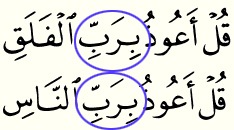First Day of Fasting
O you who have believed, decreed upon you is fasting as it was decreed upon those before you that you may become righteous
— Al-Qur’an 2:183
Fasting during summer in this part of the world is such a big challenge. Fajr is at 3.22 AM and Maghrib is at 9.30 PM. There is only a six hour difference between ifthar (breaking the fast) and sahur. My stomach cannot eat heavy meals twice in those hours. It’s such a short time span. So what I would usually do is to eat something light for ifthar, eat a heavy meal in the middle of the night (around 12 AM), and then eat a bread or two for sahur.
Another challenge for this year’s Ramadhan is to eat at 12 AM, because that means, I have to heat up the food in the kitchen which can disturb my housemates who are probably already sleeping. This wasn’t a problem last year because I knew my housemate always slept late. But my housemate this time isn’t that easy going when it comes to sleeping (not complaining, just saying… coz some people need quite a bit of time to fall a sleep). So maybe I’d eat a heavy meal for ifthar straight away… I don’t know… this doesn’t sound so good though. But we’ll see!
Although I still want to recite the Qur’an from start to finish during the Ramadhan, my focus for this year’s Ramadhan is more about learning the Qur’an in depth (i.e. the tafseer). This is yet another big challenge for me because I don’t know when I’ll have time for that!!! LOL. But insya Allah, when there’s a will, there’s a way. I wish I can write the things I learn here too so that you can benefit from it as well. But I really can’t promise! Perhaps I’d do that once I become a desperate job-seeker, then I’d have time *chuckles*.
In the mean time, I posted the tafseer of Surah Al-Ikhlas. It was typed months ago, so all I need to do is to change bits and pieces and make it easier for others to understand. There will be 5 parts in total, which will be published twice a week in this blog. This is perhaps one of my favorite talks by Brother Nouman Ali Khan. Not only did he talk about the meaning behind this Surah, but he also explained it in a grammatical sense. It makes me realize that the greatness of the Qur’an does not only lie in the miracles and the messages or stories behind it, but also the words that were chosen, the order of the words in a sentence, and the connection between one surah with the one before or after it. Subhanallah. It feels absolutely amazing to know and understand the meaning of this surah word by word. It makes me feel so blessed to be born a Muslim. No other words can be described. I just hope the tafseer would be beneficial to you!
May Allah SWT forgive us for all of our sins, make it easy for us to perform this year’s Ramadhan and keep on encouraging and reminding us to do good deeds for Him only. Amin ya rabbal alamin.




